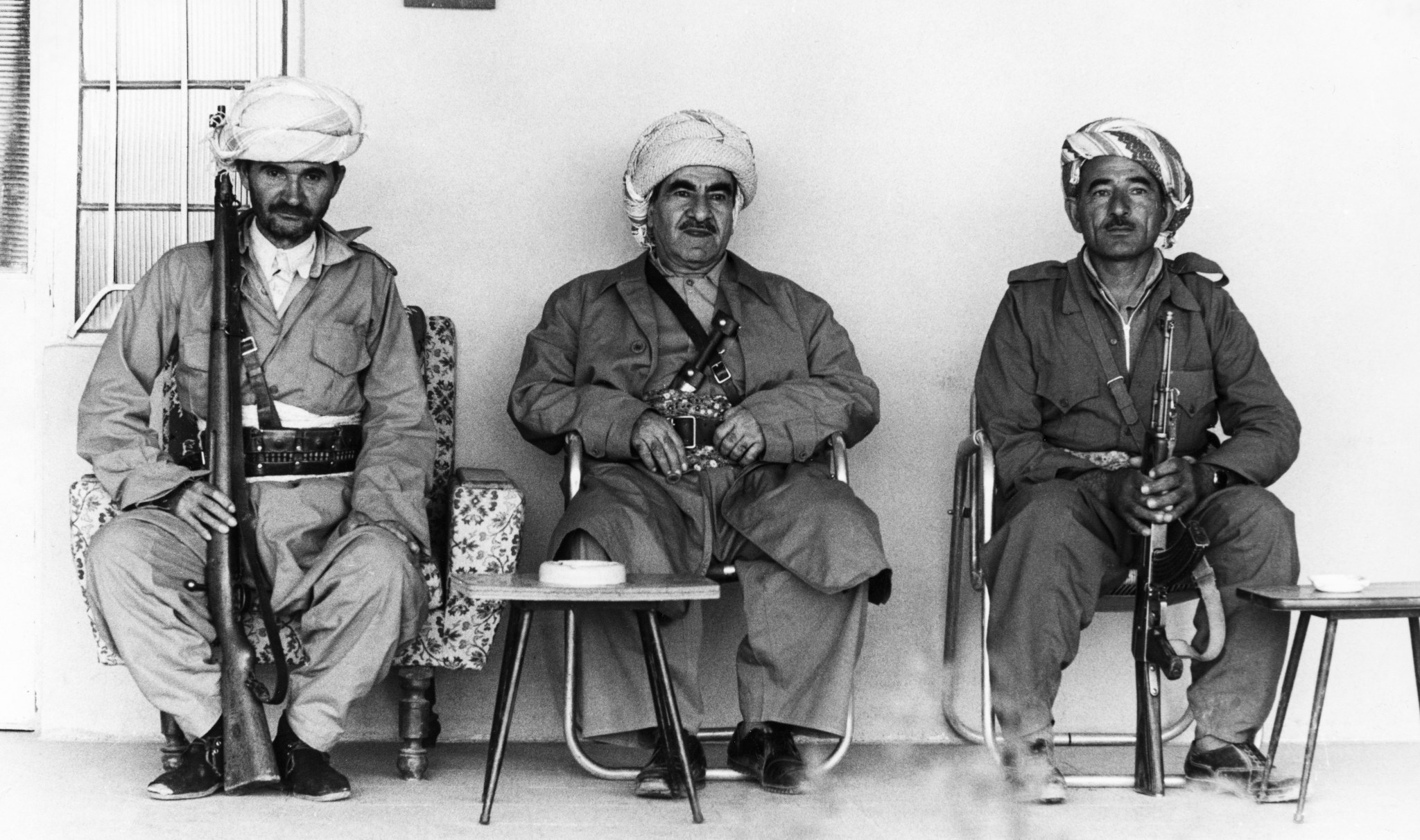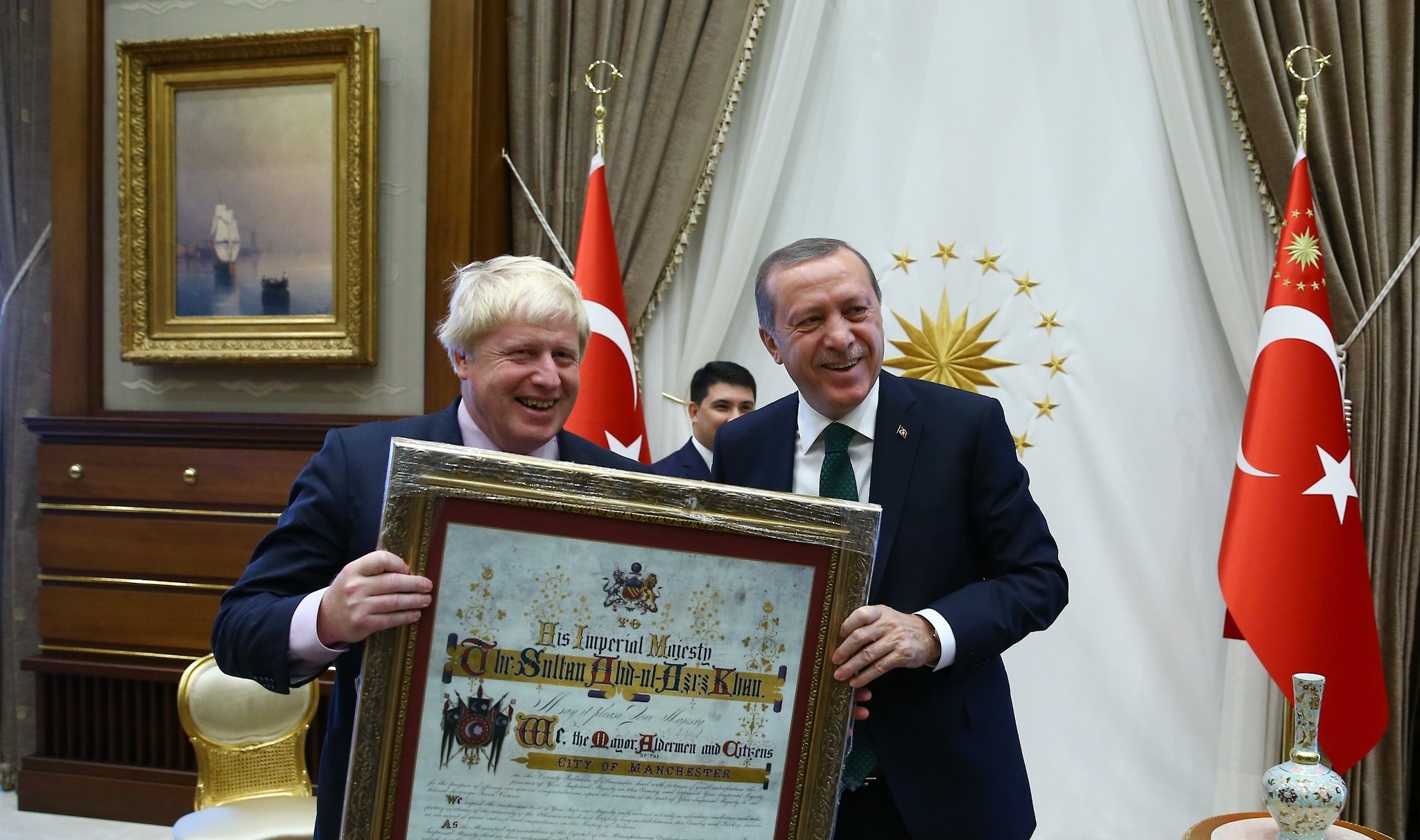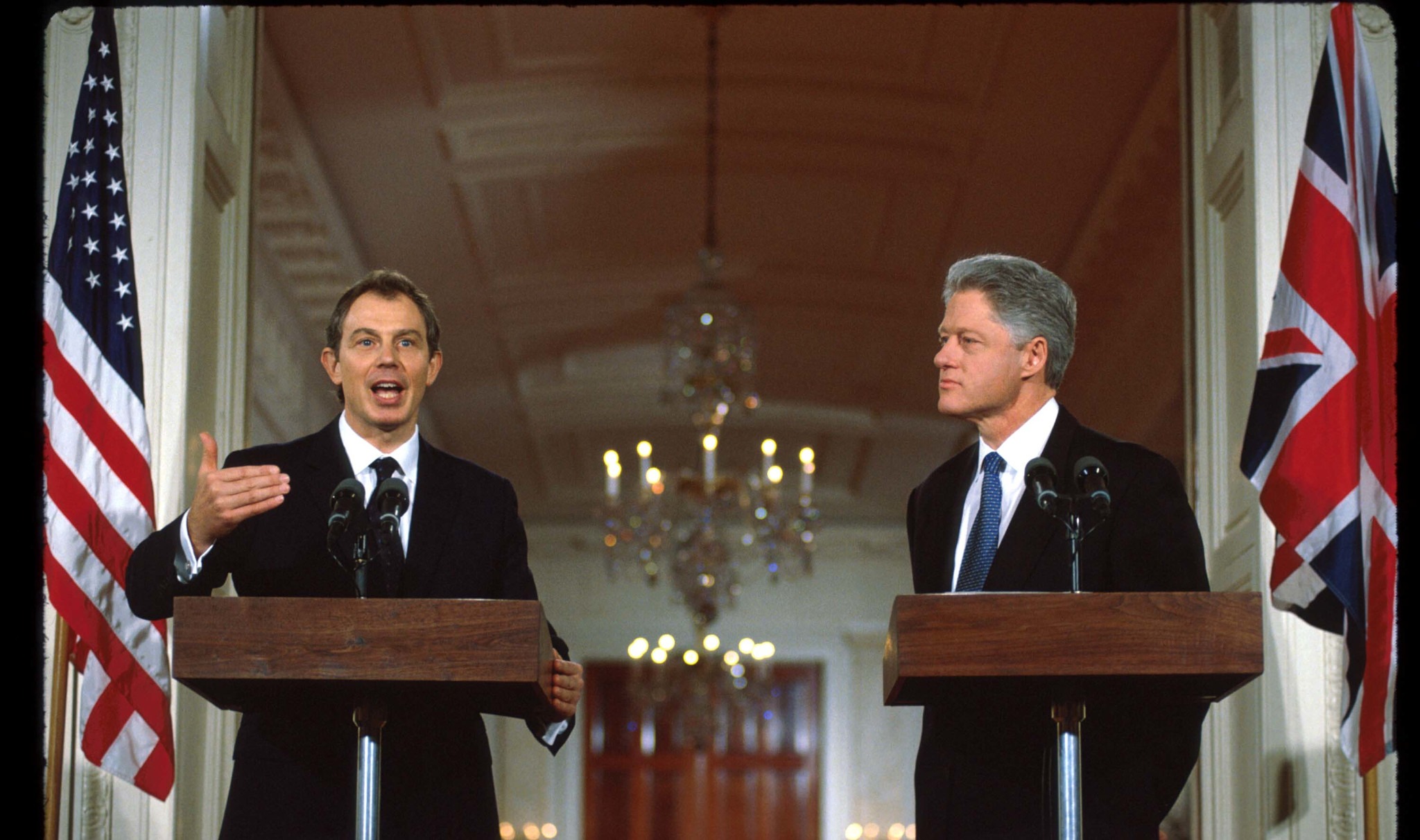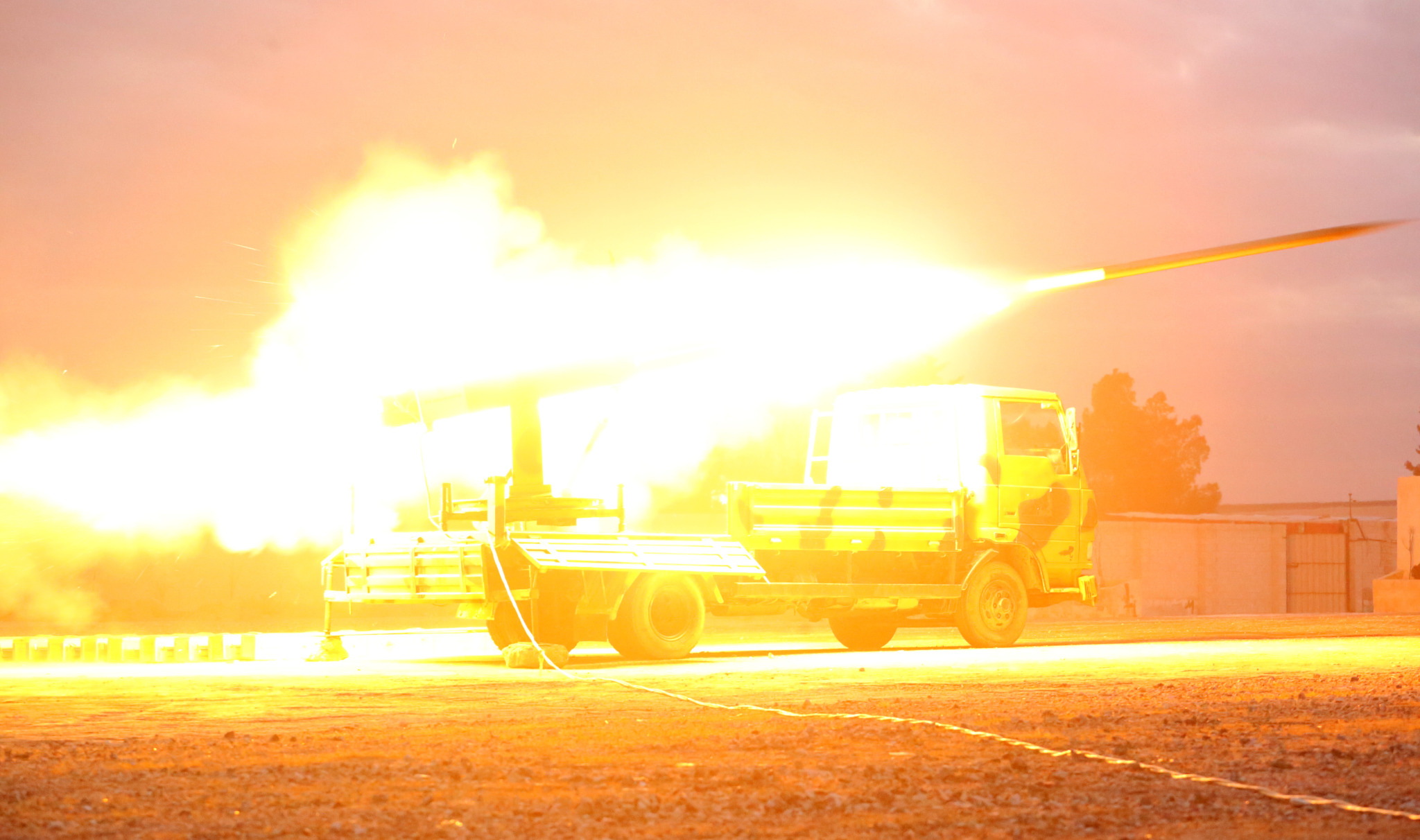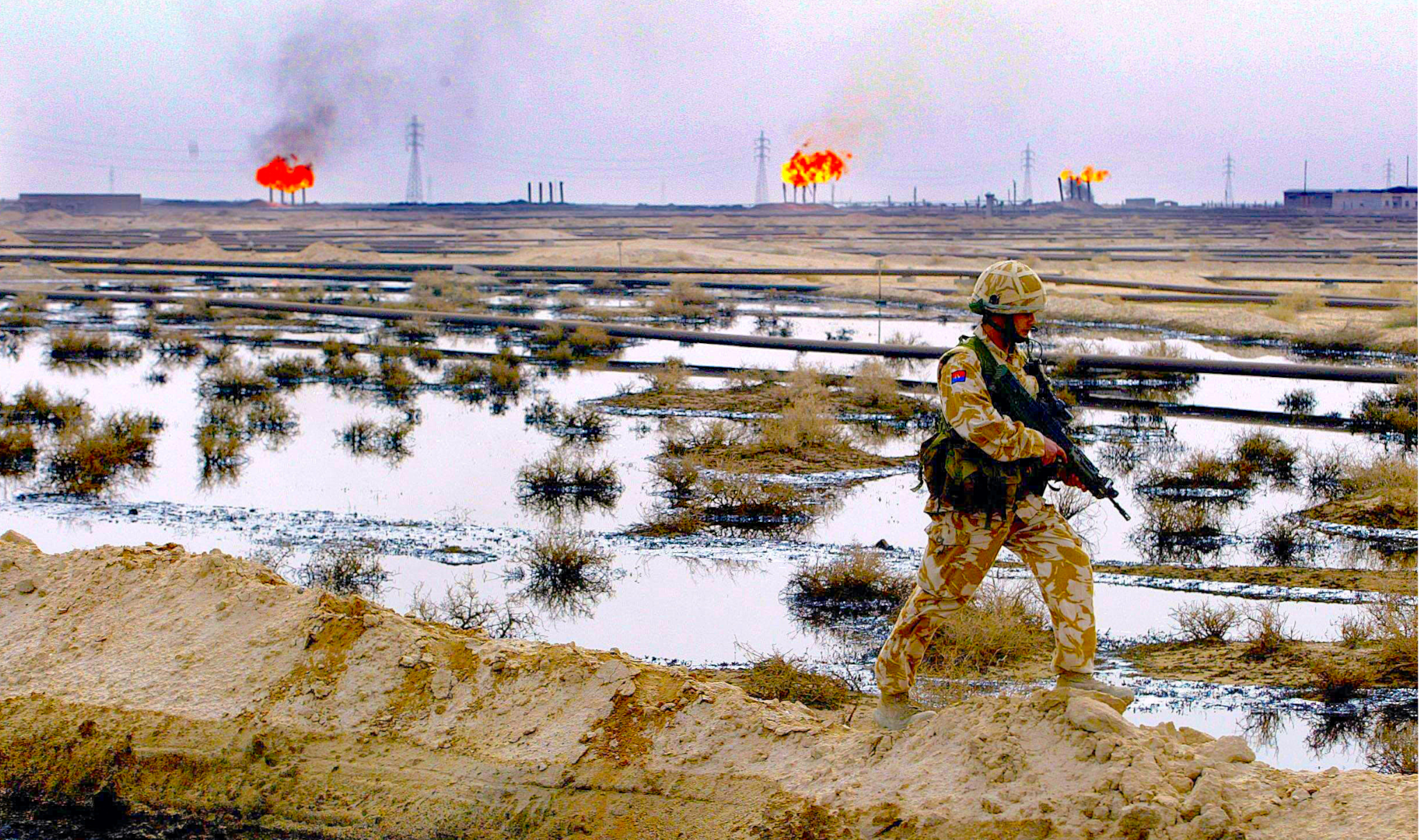In October 1963, the British government approved the export to Iraq of high explosive demolition slabs, on the understanding that these “will probably be used… for the demolition of Kurdish villages”, a Foreign Office official wrote.
The government in Baghdad had launched a full-scale attack on the Kurds in the north of the country, and Britain was stepping up arms supplies to support it, declassified files from the UK National Archives highlight.
Britain’s complicity in the destruction of Kurdish villages in the early 1960s was the forebear of similar policies in the 1980s with Saddam Hussein’s much better-known aggression against the Kurds.
‘Terror campaign’
The Iraqi military had begun its campaign on 10 June 1963, to counter Kurdish demands for autonomy, a share in Iraqi oil and the exclusion of Arab troops from the northern Kurdistan region.
The regime in Baghdad had taken power in a bloody CIA-backed coup in February 1963 – the first time Iraq’s nationalist Ba’ath party had achieved power.
British officials had no doubts of the severity of the Iraqi army’s actions against the Kurds. They noted the “Iraqi intention to carry out [a] terror campaign”.
Within ten days of the launch of the attack the army was “now apparently engaged in the clearing out and destruction of Kurdish villages in the Kirkuk neighbourhood” of northern Iraq, officials wrote.
With two-thirds of the Iraqi army deployed in the north, the Foreign Office noted that “the Iraq [sic] government is now clearly making an all-out effort to settle the Kurdish problem once and for all”.
“Ruthless tactics” were being employed by the Iraqi military including air strikes against the Kurds.
The British embassy in Baghdad reported to London on 22 June that “the brutality of the methods used by the army is likely to mar Arab/Kurdish relations for some time to come”. “The army”, it further noted “has succeeded in clearing the Kurdish villages in lowland areas around vulnerable points”.
It added: “The method adopted is to take the villages one by one, shelling them from a safe distance with tank guns and field artillery, giving sometimes little or no warning to the inhabitants. After a safe interval the National Guard or government-paid Kurds move in to loot”.
“In some cases, eg in the Kurdish quarters of Kirkuk, bulldozers have been used to knock down houses. The result is that the men take to the hills, women and children are often left to fend for themselves and the village is left abandoned and, for the time being, quiet”.
Dangers
The Foreign Office recognised there were certain dangers in Baghdad’s campaign for British interests. These were that “unsuccessful hostilities could jeopardise the present Iraq regime” and that fighting might increase the opportunities for Russian trouble-making in Kurdistan.
They also feared Kurdish unrest could spread to Turkey, Iran and Syria and that Iraqi oil installations could be damaged.
Glaringly absent from the Foreign Office list was the effect the fighting might have on the Kurdish people.
“Britain had already approved major arms exports knowing they would be used against the Kurds”
The files indicate that Sir Roger Allen, the British ambassador, initially encouraged Baghdad to negotiate a settlement with the Kurds, but once the campaign was launched, the UK provided outright support for the Iraqi regime.
Before Baghdad began operations in June, Britain had already approved major arms exports knowing they would be used against the Kurds.
Alec Douglas Home, foreign secretary in Harold Macmillan’s government, “is anxious that in general Iraq’s arms requirements should be met as quickly as possible”, one file reads.
On 11 April British ministers approved the export of 250 Saracen armoured personnel carriers which, it was recognised, were “possibly for use if needed against the Kurds”.
Also approved were exports of artillery ammunition and rockets for Iraq’s Hawker Hunter warplanes previously supplied by Britain — “again possibly for use against the Kurds”, the Foreign Office noted.
“There are considerable commercial advantages to be gained”, a ministerial committee stated, and “the scope for military exports is considerable”. The deal was worth £6m.
Rockets
The government decided to delay the supply of some of the rockets. One official explained that “it may be inadvisable to give them too generous supplies, since this might only encourage them to be more intransigeant [sic] with the Kurds and, if fighting breaks out and there are indiscriminate rocket attacks, there might be parliamentary and public criticism”.
After Baghdad attacked Kurdistan, the British government further deliberated on whether to deliver the rockets, described as a “sensitive item” since they “are intended for use against the Kurds”.
“The news of the fighting may provoke public criticism of our decision to supply Iraq with arms”
In the files, there is no consideration of the effects on Kurds, but only the impact on public relations: “The news of the fighting may provoke public criticism of our decision to supply Iraq with arms”, a briefing for the cabinet reads.
Two weeks into the campaign, the Foreign Office noted that “we are ready to do our best to meet Iraqi requirements in the field of arms and training”, though ministers were still keen to delay the supply of rockets for which the Iraqis were pressing “for use against the Kurds”.
But in July, Conservative ministers approved the export of 500 of these “high explosive rockets”. A senior Iraqi air force officer, Brigadier Hilmi, had told the British ambassador that he “needed these weapons now in order to bring their war against the insurgents to a quick and successful conclusion”.
When told that Britain would deliver the rockets Hilmi was “genuinely grateful” and thought that his boss, the overall Iraqi air force commander, “would be delighted at our gesture”, the ambassador noted.
Good relations
A Foreign Office brief to embassies explaining British policy noted that “we have throughout thought it possible that any arms we supply might be used against the Kurds, but we have had to weigh this argument against other factors”.
These other factors were to develop good relations with the new Iraqi rulers and to wean them away from Soviet military supplies.
By the end of August 1963, with fighting in Kurdistan continuing, the Iraqi air force had collected 500 Hunter rockets, with a further 1,000 to be delivered on 1 September and another 500 on 1 October. Some 18,000 more were to be provided later.
Following this, British approvals were given to supply 280,000 rounds of ammunition for Iraq’s Saracen armoured cars, mortar bombs, 25 pounder shells, armed helicopters and sterling sub-machine guns.
Britain also agreed to Iraqi requests to send a team to the country to mend the guns on Centurion tanks supplied by Britain. The “one tricky political point” with this, the Foreign Office noted, was the continuation of Iraqi operations against the Kurds.
British officers could not be seen going near the conflict areas. Therefore, “if tanks guns [sic] break down in the North, the tanks would simply have to be brought to Baghdad and repaired there”.
Genocide
British officials were aware that the Iraqi aggression they were supporting may have constituted genocide. The Foreign Office noted in a minute in September 1963 that “Iraq’s methods have been brutal and might sustain a charge of attempting to destroy or reduce the Kurds as a racial minority”.
The British embassy in Baghdad had told the Foreign Office on 6 July that: “The Kurds tend to be shot rather than taken prisoner. We have had some indications from officials that this may be deliberate policy”.
“British officials were aware that the Iraqi aggression they were supporting may have constituted genocide”
It added: “We have since heard reports of an intention drastically to reduce the Kurdish population in the North and to resettle the area with Arabs and of at least one Arab officer’s disgust with the methods employed as inhuman and ill-advised in the long term”.
The embassy further noted: “There is no doubt at all of the government’s deliberate destruction of villages… The government of Iraq… have resorted to the use of force without the normal civilised safeguards against undue loss of civilian life and perhaps even with some intention of reducing the size of the Kurdish minority in Iraq, or at least cowing it permanently”.
The date of this memo is important – since most of the British arms exports to Iraq for use against Kurds were approved after.
‘Get rid of this item’
The British also attempted to ensure the United Nations would not discuss allegations of genocide in Iraq.
A draft Foreign Office brief dated 12 September 1963 is entitled: “The policy of genocide carried out by the government of the republic of Iraq against the Kurdish people: Reasons for opposing inscription”.
This brief provides instructions for Britain’s delegation to the UN, saying: “It is obviously HMG’s [Her Majesty’s Government] wish to get rid of this item as quickly as possible”.
Foreign Office official William Morris noted that if the question of genocide did come up at the UN “our best line would be to abstain from voting” and to “avoid saying anything at all if we possibly can”.
Morris also explained that raising the charge of genocide meant the UN concerning itself with the internal affairs of member states, which was contrary to its charter and “would be most unwelcome to us in the context of any trouble in our dependent territories”.
Repression
British arms exports and training could also help Baghdad’s military regime in domestic repression. UK help in mending Iraq’s Centurion tanks could assist in this since “the two Centurion regiments form the backbone of their internal security in Baghdad”.
The supply of Hawker Hunter aircraft went ahead in the knowledge that “it may strengthen the ability of Iraqis to be masters in their own house”. Officials noted that “the Iraqi air force played an important part in overthrowing” prime minister Abdal Karim Qasim in February 1963 “and achieving control of Baghdad”.
Indeed, during the February coup British-supplied Hawker Hunter aircraft had been used to attack the Ministry of Defence building where Qasim was holding out.
This scenario was repeated ten years later in Chile when British-supplied Hunters were also used successfully to attack the palace where democratically-elected president Salvador Allende was present.
Hawker Hunters were also used against the Ministry of Defence building and the presidential palace in another coup, which took place in November 1963, overthrowing the Ba’athist government after just a few months in power.
‘Indiscriminate air attack’
The offensive against the Kurds continued throughout 1963 before in effect reaching a stalemate. British arms exports continued to flow to Iraq with the change in Iraqi regimes and from the Conservative to Harold Wilson’s Labour government in 1964.
In April 1965, the Iraqis under president Abdul Salam Arif resumed what was to become a year long offensive with similar levels of brutality against Kurds.
“The civilian population… are again being subjected to considerable suffering through indiscriminate air attack”
The British embassy noted in July 1965 that “Kurdish casualties have been mainly among the civilian population who are again being subjected to considerable suffering through indiscriminate air attack” – that is, by the Iraqi air force already supplied with Hawker Hunters and thousands of rockets by successive British governments.
It was also known that napalm was being “evidently dropped from the Iraqi Hunters”. Villages continued to be razed to the ground along with “the forcible de-Kurdisation” of some areas.
Arms orders
The Labour government defied a mid-1965 call in parliament to halt arms exports to Baghdad. It noted that “Her Majesty’s Government had no intention of withholding normal assistance to the Iraq government in the form of arms supplies”.
Huge orders were by then in the pipeline, including 17,000 Hawker Hunter rockets to be delivered from July, again fully in the knowledge that they would be used against Kurds. The Wilson government also agreed to supply the Iraqis with 40 Lightning fighter aircraft, a major arms deal.
A June 1965 Foreign Office brief noted that “we have maintained our arms supplies to Iraq, even during periods of Kurdish fighting”.
The reasons were to maintain links with the Iraqi military – described as “the Iraqi governing class” – to reduce arms supplies to Baghdad from the Soviet Union and Nasser’s Egypt and since “they bring us considerable commercial benefit”.
Meanwhile, “we have no official dealings with the Kurds and give them no assistance”.
Chemical warfare
In August 1965, Mustafa Barzani, leader of the largest Kurdish group in northern Iraq, claimed in a letter to Harold Wilson that Baghdad had purchased “large quantities of toxic gases for use against Kurdish inhabitants”.
Barzani appealed to the British prime minister to stop arming Iraq and to intercede with the regime to “prevent the latter carrying out their alleged intention of launching gas attacks against the Kurds”.
The files indicate that no British reply was sent to this letter, or to others from Barzani, given the UK refusal to have any formal contacts with the Kurds.
The British refusal came despite the understanding that the Kurds had good intelligence connections in the Baghdad regime. It also came in the knowledge that in September 1964 the Iraqi Ministry of Defence had approached the British, West German, US and Soviet governments to enquire for an order of 60,000 gas marks for urgent delivery.
“They are certainly showing a strong current interest in chemical warfare”
British officials also received “an account which we believe to be reliable, of the Army’s plan for putting an end to the Kurdish problem”.
Moreover, the British embassy wrote in September 1965 that: “The Iraqis would have little humanitarian compunction about using gas if things were (as they are) going badly for them. They would probably believe they could hush up the incidents and might not worry very much about world opinion”.
It added: “They are certainly showing a strong current interest in chemical warfare. We believe they may well have stocks of some gas (probably of the riot control variety) and likely looking cylinders have actually been seen”.
Although the memo went on to say that it was difficult to see the Iraqis using gas in current circumstances, “on the other hand there is ample evidence that the Kurds are genuinely worried at the possibility that gas will be used”.
An agreement was signed in June 1966 giving the Kurds some autonomy in northern Iraq. But Kurdish grievances, and Baghdad’s repression, continued, eventually leading to a brutal new phase of conflict in the late 1980s.
A new dictator in Baghdad, Saddam Hussein, then used chemical weapons against the Kurds, most notoriously at Halabja in 1988, killing over 3,000 people. He may have thought the British would acquiesce.
This article is an edited extract from Mark Curtis’s book, Unpeople: Britain’s Secret Human Rights Abuses

